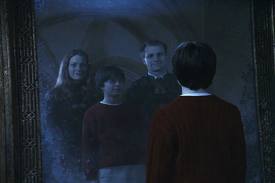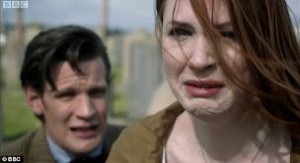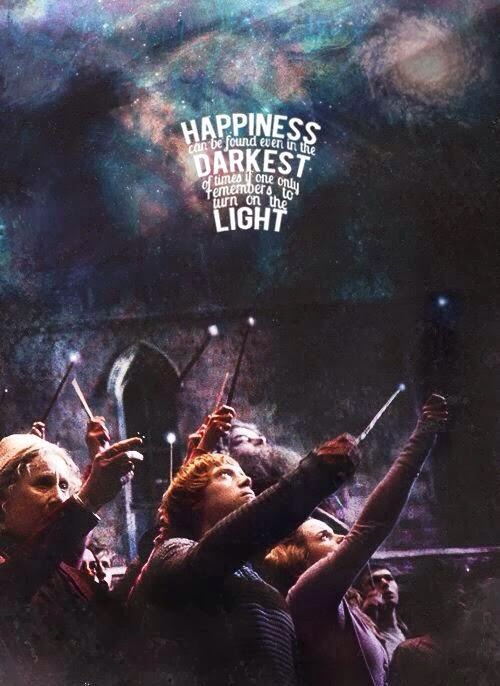Did you ever wish that you could have amazing Superpowers or that you would suddenly discover that you were really a witch or a wizard? Many of us often wish for special powers, especially when times are rough and we might just want to find our strength in something. It’s often for this reason that we tend to relate to fictional characters that have undergone similar experiences to us.
Was there ever a time in your life when you felt different from everyone else? Did you ever think that if you told anyone how you really felt that no one would truly get it? Do you remember the first time you felt that way?
Chances are that your answers to the first two questions in the previous paragraph were both yes. This is because many of us feel different from other people and during our most painful moments, we often believe that no one can possibly relate or understand. It is at these difficult moments that identifying with someone else, real, or even fictional, can often make us feel more understood and connected. This is called common humanity, which is the realization that we share similar experiences with others and that these feelings are universal, meaning that everyone experiences them.
Did you ever have an experience like this: you are watching a TV show or reading about one of your favorite characters when you suddenly realize that this character is going through the same or similar thing as you are? If you had an experience like this, what was that like? How did you feel when you realized that you and this character had something in common?
For me, one of these moments occurred when I was reading Harry Potter and the Philosopher’s Stone. Harry found the Mirror of Erised, which showed him what he most wanted to see – his parents. The next evening he went back and continued to return until he was caught by Dumbledore. Harry was driven by the pain and longing for his family that he did not appear to think Ron or anyone else would understand. When I was reading this part of the book, I really identified with Harry in missing a departed family member and wishing to spend time with them even if through the mirror.

In fact, it seems that many of the characters we identify with have faced some serious challenges and had to face pain and suffering, along with fear and anxiety. Think of some of the characters that you really connect with, like Harry Potter, or Batman, or The Black Widow from the Avengers. Is there a specific element that really speaks to you about this character? Do they have similar characteristics to you or maybe they went through a similar experience to the one you did?
It’s interesting how often we can relate to fictional characters even if they are very different from us. The Doctor might be a 2,000 year old alien from planet Gallifrey but we can still relate to the pain he experienced when he lost Rose or when the Ponds were taken from him by the Weeping Angels.Saying goodbye to the ones we love is never easy and The Doctor has certainly experienced his fair share of painful farewells.

This identification with another being through common humanity can actually be extremely beneficial for our health. Research shows that connecting with others through a physical or an emotional connection releases a number of helpful hormones, such as oxytocin and reduces the release of other stress hormones, such as cortisol, which have been found to not be beneficial for health. Oxytocin release is associated with soothing and reduction of anxiety and distress.
It’s possible that something similar occurs when we form a connection with a fictional character. Maybe the reason why it might feel so good to connect with our favorite character or to connect with another member of our Fandom (another Whovian or Potterhead, for example) is due to the release of these hormones in our bodies. This would then mean that this connection is actually good for our health. While we can’t say for sure whether connecting with fictional characters is good for us, there are a number of stories that people share with me every day about how Batman or Spider-Man helped them heal from a painful loss or how Harry Potter helped them overcome depression.
So then what is the actual value of these movies, books, and TV Shows? It seems that as long as it is done in moderation, it can lead to helpful benefits. I am not saying that watching an episode of Buffy or reading Iron Man will take away the pain caused by severe trauma but it is possible that finding a character who was also able to overcome a similar adversity just might help initiate the steps necessary for a positive change, whether it is to reach out and connect with other people or see a therapist, or to engage in other activities that are important or helpful.
In my work with my patients with trauma and/or anxiety, I use something I like to call Superhero Therapy. In implementing Superhero Therapy, I’ve basically “geekified” an existing type of therapy, acceptance and commitment therapy, which has been shown through many research trials to be very helpful with anxiety and many other disorders. This type of therapy focuses on helping patients identify what’s most important to them and to learn how to follow those values (I refer to this as identifying the kind of Superhero you would want to be and then taking steps to become this Superhero).
So if we were to look at our favorite characters as role models, what do they actually teach us about facing our fears? From the boggarts to Patronus charms, from being afraid of Bats to becoming Batman, from fearing the loss of his friends to taking a chance, our favorite characters often seem to suggest that no matter how scary, how anxiety-provoking, how painful the path might be, if it is truly for an important cause, it will be worthwhile.


The strongest identification I had with one character was with Katara. while there I at least see where it comes from, I recently discovered one with Agents of Shields Sky, a bit lessened in the current season. I couldn’t place that easily.
I’m a big fan of Katara as well 🙂